Malay Muslim Perceptions of Organ Donation: Ethical and Jurisprudential Considerations
Organ donation is one of the medical advancements today and has become a successful alternative that has already saved many lives around the world. The changing times and advancements in technology have encouraged the use of this method in the medical field, as it offers an alternative to save lives and help many people.
However, in Malaysia, more than ten thousand people are waiting in hope of receiving an organ donation that could give them a chance to survive. According to statistics from the National Transplant Resource Centre as of November last year, the number of patients waiting for a kidney transplant is the highest at 10,266, followed by heart transplants (nine), liver (nine), heart and lung (six), and lung transplants (one). These statistics show a shortage of organ donations in Malaysia, as well as a lack of awareness among the community, especially Muslims in Malaysia.
This is due to various factors that cause reluctance to donate organs, such as a lack of awareness, the perception that it is a painful or distressing matter, especially for those who have passed away, and other concerns. This can be seen through a study conducted on the willingness of Malaysians to donate kidneys. The study found that the rate of kidney donors varies by ethnic group, with the highest rate among Indians (72.7%), followed by Chinese (61.8%), other races (33.3%), while Malays recorded the lowest rate of 10.6%. This shows that the Malay community is the least aware of this crucial issue, which deserves attention and support to help others in need.
In addition, the issue is compounded by a lack of religious education and weak understanding among the Muslim community in Malaysia regarding the jurisprudential rulings on organ donation. There is often confusion about the views of jurists on this matter, especially since there are differing opinions—some permit it, while others prohibit it.
Therefore, this article aims to provide a better understanding of the perceptions of Muslims in Malaysia towards organ donation and to raise awareness within the community about its importance.
Definition of Organ Donation
Organ donation is the voluntary and charitable act of giving one’s organ or tissue, either during life or after death, without receiving any form of payment. In Arabic, the term tabarruʿ reflects giving without obligation, similar to a gift or a will. Organ donation is permitted in Islamic ethics as long as it is done freely, under proper medical supervision, and without commercial intent, in order to preserve human dignity and prevent exploitation.
Categories of Organ Donation
There are three main types of organ donation.
The first type involves transferring an organ or part of the body within the same person, such as skin grafts for burn treatment or the transplant of bones and cartilage. This type is permitted when the benefit outweighs the expected harm to the individual.
The second type is organ donation from a living person to another living person. This is commonly done between family members, which increases the likelihood of genetic compatibility and reduces the risk of organ rejection. In cases where the donor is not a relative, comprehensive medical tests are conducted to ensure the donor is healthy and the organ is suitable. Donations between identical twins are particularly successful due to their genetic similarity, often requiring little to no immunosuppressant medication. This type of donation also minimises suspicions of organ trade and helps avoid future disputes between the donor and recipient. According to the World Health Organization, a living person may donate one kidney, part of the liver, part of the pancreas, or one lung. However, vital organs such as the heart—essential for sustaining life—cannot be donated while the donor is alive, as this would lead to death and is not permitted in Islam.
The third type is organ donation from a deceased person to a living person. This includes donors who are either brain-dead or have experienced complete death (both cardiac and brain death). This type of donation must be based on prior consent, such as through an organ donor card. The Islamic Fiqh Academy recognises brain death as equivalent to full death and permits the use of the deceased’s organs if consent was given. Permissible organs include the heart, liver, lungs, pancreas, and skin, while reproductive organs such as ovaries and testicles are excluded in order to protect lineage.
Scholars’ Opinions on Organ Donation and Fatwas in Malaysia
Contemporary scholars have debated the permissibility of organ donation from both living and deceased individuals. Regarding living donors, scholars such as Muḥammad Mutawallī al-Shaʿrāwī, Aḥmad bin Aḥmad al-Khalīlī, ʿAbd al-Salām al-Sukrī, Sayyid Muḥammad Quṭb al-Dīn, and Sharīf Muḥammad ʿAbd al-Qādir argue against its permissibility. They maintain that the human body belongs to Allah, and thus no one has absolute ownership over it. Furthermore, they liken organ removal to bodily harm and argue that the removed organ becomes maytah (dead flesh), referring to the ḥadīth: “What is cut from a living animal is considered dead flesh” (Tuhfat al-Muḥtāj, 1/218).
However, the majority of contemporary scholars and fatwa councils refute this position. They argue that organ donation is permissible for medical purposes, as individuals possess a certain right of disposal (taṣarruf) over their bodies. Donation is not seen as harm but rather as an altruistic act aimed at achieving public benefit. They cite the ḥadīth, “A believer does not become impure” (al-Mughnī, 1/69) to support the view that the Muslim body remains dignified both in life and death. Moreover, organ donation is framed as a form of sacrifice and jihād, both of which are highly encouraged in Islam.
Similarly, organ donation from deceased individuals is also deemed permissible by most scholars, provided several conditions are met: there must be a dire necessity with no alternative treatment; the procedure must be safe and likely to succeed; and it should not result in greater harm.
In Malaysia, fatwas permitting organ donation from both living and deceased donors have been issued at various levels. The National Fatwa Council endorsed it in 1970, followed by Perlis (1965), Sarawak (1996), Selangor (2000), Johor (2001), and Penang (2010).
Analysis of Fiqh on Organ Donation
The preservation of life (ḥifẓ al-nafs), one of the highest objectives of Islamic law, provides a framework for analysing the modern issue of organ donation through the five fundamental goals of Maqāṣid al-Sharīʿah. According to Surah al-Mā’idah, verse 32, it is understood that Sharīʿah must be followed not only to protect religion but also to safeguard life. The permissibility of organ donation in situations of necessity or danger is supported by fiqh principles such as “harm must be eliminated”, “necessity permits the prohibited”, and “hardship brings ease”—provided that the situation is confirmed by a reliable Muslim specialist and there is no alternative solution.
Conclusion
In Islam, organ donation is regarded as a noble deed aligned with the objectives of Sharīʿah, especially in preserving life. It is viewed as an act of generosity and a means of attaining public benefit. Under guidelines that uphold the dignity of the deceased and ensure no harm to the donor or recipient, religious authorities—including JAKIM and various state fatwa councils—have issued rulings permitting organ donation in Malaysia.
However, among Muslims, organ donation rates remain low due to lack of knowledge, misconceptions, and fear of medical procedures. Three fundamental actions can help address these challenges:
First, raising awareness through sermons and talks in mosques and surau;
Second, enhancing collaboration between religious bodies and medical institutions to provide educational resources on organ donation;
Third, using digital platforms and social media to extend the reach of awareness campaigns.
To sum up, organ donation in Islam reflects the values of solidarity and compassion. With a holistic and integrated approach, it can be embraced as both an act of worship and a significant social contribution.
Authors:
- Hanaa’ Binti Daud,
- Kamilia ‘Alya Binti Kasmida,
- Siti Nurhidayah Tullah Binti Idris,
- Sofiyyah Binti Khairulanuar
About authors: Hanaa’ Binti Daud, Kamilia ‘Alya Binti Kasmida, Siti Nurhidayah Tullah Binti Idris and Sofiyyah Binti Khairulanuar are pursuing their Bachelor’s degree in Islamic Revealed Knowledge and Heritage (Fiqh and Usul al-Fiqh) at AHAS, KIRKHS, in the International Islamic University Malaysia.
[ As part of Synergised Academic and Student Activities, this article was prepared for the course RKFQ 4315, Qadaya Fiqhiyyah Mu’asirah: Contemporary Juristic Issues at AHAS KIRKHS, IIUM (Sem 2,2024-2025)]
References
الزحيلي، محمد مصطفى الزحيلي. (د.ت). القواعد الفقهية وتطبيقاتها في المذاهب الأربعة. ط 1. دمشق دار الفكر:مكتبة
الأسد. عارف علي عارف القره داغي. ( 1432 ه). قضايا فقهية في نقل الأعضاء البشرية. (ط، 1 ) الناشر: الجامعة الإسلامية المالية ماليزيا.
عفاف محمد أحمد بارحمه. ( 2020 ). التبرع بالأعضاء بعد الموت من منظور فقهي ومدى وعي اتمع السعودي بالتبرع بالأعضاء وبجهود مركز الملك سلمان للتبرع بالأعضاء. (ط 1 ) الناشر: مجلة كلية دار العلوم
يوسف القرضاوي. ( 2011 ). زراعة الأعضاء في ضوء الشريعة الإسلامية. (ط، 2 ) مدينة نصر- القاهرة-مصر
Bernama, Penderma Organ Masih Rendah, Lebih 10,000 Pesakit Menunggu Untuk Teruskan Kehidupan, (2025) Astroawani.com, Accessed 17 May 2025 https://www.astroawani.com/berita-malaysia/penderma-organ-masih-rendah-lebih-10000 -pesakit-menunggu-untuk-teruskan-kehidupan-507722 .
Gurkiret Kaur, Donating Your Organs in Multicultural Malaysia, Malay Mail, March 21, 2022, https://www.malaymail.com/news/what-you-think/2022/03/21/donating-your-orga ns-in-multicultural-malaysia-gurkiret-kaur/2048602 .
Health Direct. (September 22, 2017). Organ Transplants. Healthdirect.gov.au; Health Direct Australia. https://www.healthdirect.gov.au/organ-transplants
Mohamad Firdaus Mohamad Ismail, M. F. (2022). Exploration on the Understanding of Organ Donation Activities Among Muslims in Kuantan. International Journal of Care Scholars, 5(1), 56-64.
Peter M. Dim, D.M. (2021), Low Rates of Organ Donation and Transplantation: Causes and Solutions, Journal of Social Sciences and Humanities, 18(9), 147-157
Sabjan, M. A., Mat Akhir, N. S., Shamsudin, R., Rosele, M. I., Muda@Ismail, M. I., & Hamzah, H. (2024, March 7) Konsep Pemindahan Organ Haiwan kepada Manusia:Kajian Perspektif Usul Fiqh, Fatwa, Etika dan Kerohanian[The Concept of Transferring Animal Organ to Human: A Study from the Perspectives of Usul Fiqh, Fatwa, Ethics and Spirituality]. BITARA. https://bitarajournal.com/index.php/bitarajournal/article/download/473/425/1445
Shaikh Mohd Saifuddeen Shaikh Mohd Salleh, M. Z. (2011). Pemindahan Organ Dari Perspektif Islam . Jabatan Kemajuan Islam Malaysia (JAKIM), 1-40
Shaikh Mohd Saifuddeen Shaikh Mohd Salleh, M. Z. (2011) . Organ Transplantation from Islamic Perspective, Jabatan Kemajuan Islam Malaysia (JAKIM), 1-40.
Zulkiflialbakri. (2021, September 21). #23 Derma Organ dan Tisu – Dr Zulkifli Mohamad Al Bakri. https://zulkiflialbakri.com/derma-organ-dan-tisu/
Disclaimer
The views expressed in this article are the author’s own and do not necessarily mirror Islamonweb’s editorial stance.

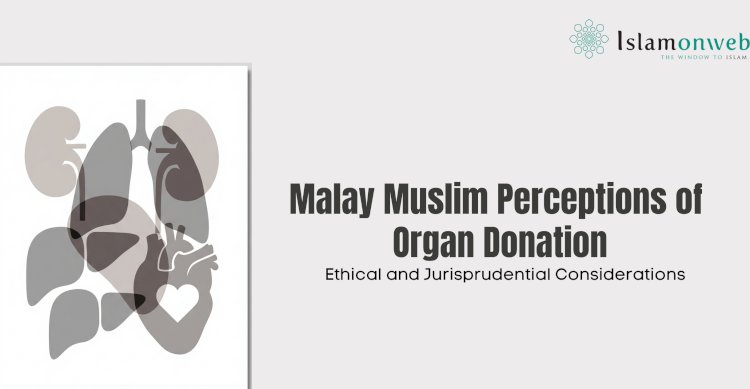


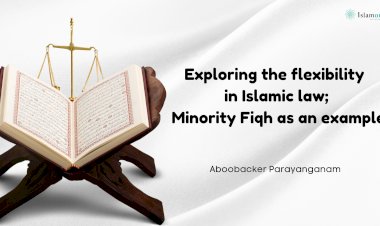
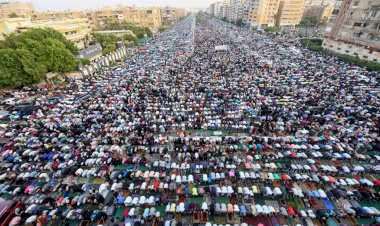

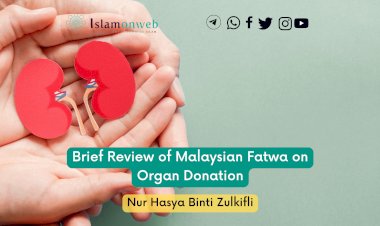
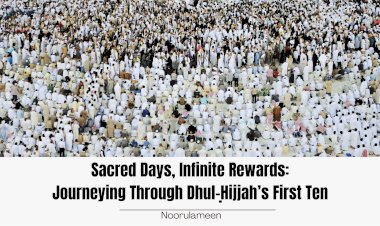
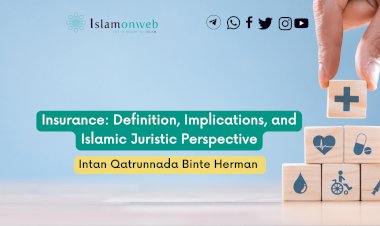














Leave A Comment